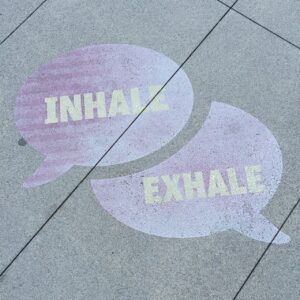The state of being comfortable, healthy, or happy is the definition of well-being. In these extraordinary times, we must strive to be well—mentally, physically, and emotionally. We are facing enormous obstacles due to the pandemic. People in recovery are perhaps more vulnerable now than ever.
It would be best if you kept your finger on your mental health pulse to ensure you do not slip back into harmful behaviors. Given all that’s happening, it’s only natural to be concerned. We have to remind ourselves of what we can control and what we cannot. We haven’t the power to change many things in life today.
Over the last several months, we’ve reminded our readers that “this too shall pass.” A common saying in the rooms of recovery, but one that can assist us when the day becomes dark. Thankfully, we are not alone; a fellowship exists that you can lean on if you’re triggered or symptoms of mental illness crop up.
Still, there are times when you might have to rely on your tools to overcome challenges. There are little things you can do throughout the day to preserve the gains you’ve made. Prayer, meditation, and mindful exercises will help you stay positive; a positive attitude changes everything.
Many of us are isolated from supportive peers, friends, and family. It’s not hard to feel alone and apart from the people we care for most. The coronavirus has proven a formidable foe, and there isn’t a concise prediction of when life will return to normal. Nevertheless, you have the power to keep your recovery intact. Men and women in mental and behavioral health recovery can see the other side of COVID-19 scourge even stronger.
Breathing for Recovery
It may be an inopportune time to make recommendations about how to breathe amid a pneumonic plague. Some 664,000 people have died from the coronavirus spreading across the globe. However, breathing is an excellent recovery aid for coping with stress.
Breathing can help you manage anxiety and depression, states of being that are the remora fish of the pandemic. Countless individuals are feeling discontent and frustrated. We all share the common trait of fearfulness because of the deadly virus and the havoc it has wrought on society.
Vestiges of the global outbreak, experts predict, will be higher rates of mental illness. What we do today might impact how we get through the days to come. You can improve your mental health by adopting breathing exercises, according to researchers at Yale University.
Mindfulness and Positivity
Research appearing in the Frontiers in Psychiatry shows that students who learn breathing techniques and emotional intelligence strategies are better able to manage stress and anxiety. Yale News reports that the practices also helped with depression and social connectedness.
In addition to academic skills, we need to teach students how to live a balanced life,” said Emma Seppälä, lead author and faculty director of the Women’s Leadership Program at Yale School of Management. “Student mental health has been on the decline over the last 10 years, and with the pandemic and racial tensions, things have only gotten worse.”
While the study focused on the efficacy of classroom-based wellness training programs, incorporating techniques for managing stress and anxiety is beneficial for everyone. Students taught SKY Breath Meditation, yoga postures, social connection, and service activities reported benefits in six areas of well-being: depression, stress, mental health, mindfulness, positive affect, and social connectedness.
If you are experiencing increasing anxiety and depression, please consider learning more about the above techniques. If you have gone through an addiction or mental health treatment program, maybe you learned about the value of yoga and breathing exercises for maintaining a positive attitude. Hopefully, you are still utilizing the practices.
Increased self-awareness and compassion are needed today. Please, do everything you can to achieve those noble goals. The downtime in the day is an opportunity for well-being techniques and to practice positivity. You can still be of service to your peers from afar.
I didn’t realize how much of it was physiology, how you control the things inside you with breathing,” said Anna Wilkinson, Yale ’22 B.A., who uses the practices regularly. “I come out of breathing and meditation as a happier, more balanced person, which is something I did not expect at all.”
Mental Health and Addiction Treatment for Men
Contact PACE Recovery Center if you are a male who struggles with mental illness or addiction. Our highly-trained team can help you begin the journey of recovery during this unprecedented time. We also offer a program designed for students: assisting young men with their academic pursuits. The PACE staff can help you find routine, structure, purpose, and accountability.



